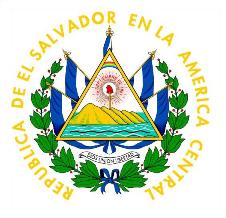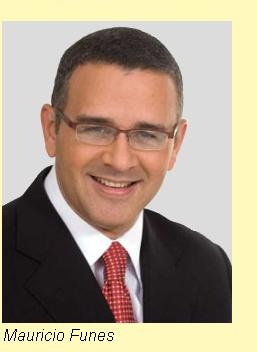

REPUBLIC OF
EL SALVADOR
• Official name: Republica de El Salvador (Republic of El Salvador)
• Location: Central America
• International organisations: Organisation of American States, United Nations, World Trade Organisation
• Borders: Guatemala, Honduras
• Coastline: North Pacific Ocean
• Land area: 21,040 Km2
• Population: 5,700,000
• Annual GDP (PPP) per capita: US$7,100 (2009 CIA estimate). World ranking: 99

• Ethnicity: More than 90% of the population are of mixed Amerindian and European
(mostly Spanish) decent. The remainder are mostly of European descent.
• Languages: Spanish is the official language and is univerally understood.
Amerindian languages are used in the interior
• Religion: Almost the entire population is at least nominally Christian (Catholic
80%, Protestant 20%).
• Form of government: Presidential democratic republic. El Salvador is divided
into 14 Departments
• Capital: San Salvador
• Constitution: The
Constitution of the Republic of El Salvador came into effect on 23 December 1983.
• Head of state: The President, elected by direct universal suffrage for a
five-year term.
• Head of government: The President, who appoints all ministers.
• Legislature: El Salvador has a unicameral legislature.
The Legislative Assembly has 84 members, elected for three-year terms.
Of these, 64 are elected from multi-member constituencies and 20 are
elected by proportional representation.
• Electoral authority: The Supreme Electoral Tribunal administers national elections
• Freedom House 2009 rating: Political Rights 2, Civil Liberties 3
Political history
The area which is now El Salvador was brought under Spanish rule
in the early 16th century, and from 1528 became part of the captaincy-general
of Guatemala. In 1823 it became part of the independent United Provinces
of Central America, but in 1838 it became an independent republic.

Through the 19th century El Salvador was racked by conflict
between liberals and conservatives, with frequent coups and occasional
civil wars. After 1911, however, there was a period of stability and
progress. This ended in 1931 when General Maximiliano Martinez seized
power, and ruled as a dictator until 1944. There were further coups and
disorders through the 1950s and '60s, as the largely Amerindian rural
population increasingly resisted rule by the small white minority of
landowners.
In 1979 the conservative President Carlos Romero was overthrown by
a reformist military junta. The country was polarised between the left-wing
guerillas of the Farabundo Marti National Liberation Front
(FMLN) and the extreme right Nationalist Republican Alliance
(ARENA) party led by Roberto d'Aubuisson, a conflict
that killed 75,000 people dead and left 500,000 refugees. In 1980 Jose Napoleon
Duarte, a Christian Democrat, became President, with the twin
aims of defeating the FMLN and bringing about fundamental reforms as a
basis for national reconciliation.
He was successful in both these objectives, and under his
ARENA successor Alfredo Cristiani a peace agreement was signed with the FMLN,
which agreed to become a legal political party. Since 1992 El Salvador has enjoyed
constitutional government and democracy, and both ARENA and the FMLN have become more moderate
parties. From 1989 to 2009 four successive ARENA presidents
held power, and gave El Salvador what the party's website calls "20 years of peace, progress and
freedom." In 2009 the FMLN finally broke ARENA's grip on power when
Mauricio Funes was elected President.
The 2006 legislative election gave neither of the two major parties a majority.
Freedom House's 2009
report on El Salvador
(which was written before the 2009 presidential election) says: "El Salvador is an electoral
democracy. The 2006 legislative and 2004 presidential elections were deemed free and fair...
Corruption is regarded as a serious problem throughout government... El Salvador was ranked 67 out
of 180 countries surveyed in Transparency International's 2008 Corruption Perceptions Index...
The constitution provides for freedom of the press, and this right is generally respected in
practice. The media are privately owned, but ownership is confined to a small group of powerful
businesspeople who often impose controls on reporters to protect their political or economic
interests... Freedoms of assembly and association are generally upheld... El Salvador's wide array of
nongovernmental organisations generally operate freely... The ineffectual and corrupt judicial
system continues to promote impunity, especially for the well connected."
Updated February 2010
|

